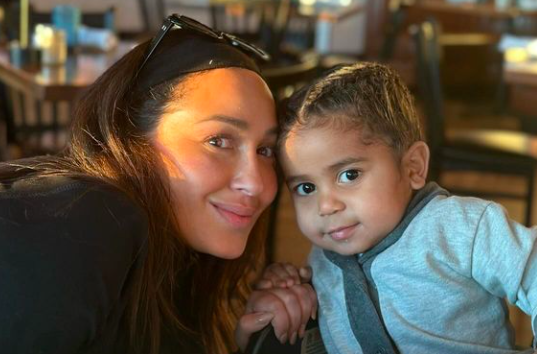TV personality and singer Adrienne Bailon-Houghton recently discussed on her challenging journey through in vitro fertilization (IVF), revealing the staggering costs involved in her pursuit of motherhood. In an exclusive interview with People, Bailon-Houghton shared her experiences, emphasizing the financial burden that many individuals and couples face when navigating fertility treatments.

Bailon-Houghton, 40, and her husband, Israel Houghton, welcomed their son, Ever James, via surrogate in 2022 after enduring a six-year struggle with infertility. The actress disclosed that her IVF journey alone encompassed eight cycles, in addition to various other fertility treatments like IUI (intrauterine insemination).
“I only did eight cycles of IVF, but that doesn’t include the amount of IUIs I did and every other kind of imaginable treatments that you could imagine for fertility,” Bailon-Houghton told People. “So it was a pretty tough six years of trying to have my son.”
Why IVF Is So Costly
IVF, short for in vitro fertilization, is a common fertility treatment that started to be offered in the 1980s and involves the implantation of a fertilized egg into the uterus through a brief surgical procedure.
Speaking candidly about the financial toll, Bailon-Houghton estimated that her total expenditure on fertility treatments exceeded a staggering one million-plus dollars.
She estimated she spent on her fertility treatments, Bailon-Houghton, whose net worth is estimated to be about $4 million, says she thinks it’s “easily over a million.”
“And that is not realistic for the average person. And I recognize that,” stressed Bailon-Houghton, a former member of the girl groups 3LW and The Cheetah Girls. She also co-hosted of the daytime talk show “The Real” from 2013 to 2022.
The cost of IVF and related fertility treatments remains a significant barrier for many hopeful parents, prompting discussions about healthcare affordability and equitable access to reproductive services.
According to Forbes, the cost of a single IVF cycle, encompassing ovarian stimulation, egg retrieval, and embryo transfer, varies between $15,000 and $30,000, depending on the clinic and the patient’s specific medication requirements. Medications alone can constitute up to 35% of these expenses.
In most clinics, the quoted price does not include the cost of injectable hormones, which typically range from $3,000 to over $6,000. Patients usually pay this amount directly to the pharmacy that dispenses the prescription.
Here’s a beak down of costs, according to Forbes: Base fee: $12,000 to $14,000 ( monitoring appointments, egg retrieval, embryo creation, and fresh embryo transfer); Fertility assessment: $250 to $500 (ultrasound of the ovaries, a blood test, and a physical exam); Semen analysis: $200 to $250; Injectable medications: $3,000 to $6,000. Embryo cryopreservation: $1,000 to $2,000 (freezing embryos); Embryo storage: $350 to $600 annually; Genetic testing: $1,800 to $6,000, depending on which test your doctor recommends and the genetics lab used; and Medication: $300 to $1,500.
Then, if you are using a surrogate there are even more costs, which could be an additional fee of around $30,000 to $50,000, according to Forbes.
Insurance coverage for IVF varies based on the coverage plans chosen by employers and the state of residence. Twenty states mandate employers provide fertility benefits, but the specific treatments covered and eligibility criteria differ across states, according to The National Infertility Association. Fourteen of those states require coverage of IVF treatments.
And, even in states with mandated insurance coverage for fertility services, patients may still encounter restrictions that necessitate out-of-pocket payments for certain treatments or birth control, Nerd Wallet reported. Employers can be exempt from state mandates based on their size (under 50 employees) or if they’re self-funded. Additionally, states often impose eligibility criteria, such as requiring a diagnosis of infertility or setting caps that limit insurance coverage after reaching a specified threshold.
Despite the long and expensive journey, Bailon-Houghton is happy with the outcome.
Soon after her son was born, she posted on social media, as per People, “He is worth every tear, every disappointment, every delayed prayer, every IVF cycle, every miscarriage. Everything. All we feel is joy and overwhelming love & gratitude. Grateful to God, to our angel surrogate and to all of our friends and family who have stood with us for over 5 years on this journey. He’s here and we have never been happier to lose sleep! #HappilyEverHoughton.”

